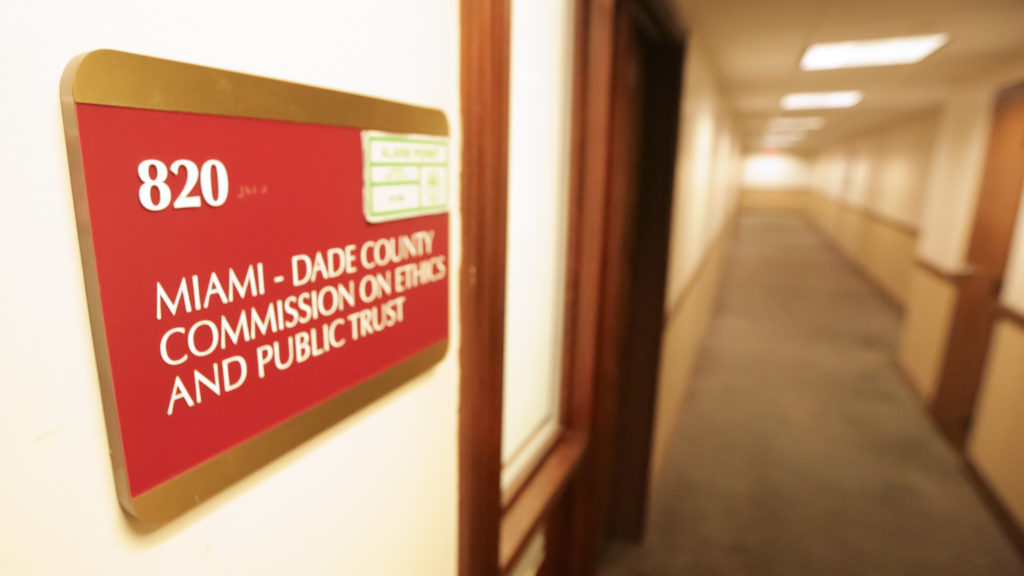Ethics Commission Closes Key Biscayne Investigation
Tony WintonSeptember 9, 2019

In this file photo, the entrance to the offices of the Miami-Dade Ethics Commission are seen, Aug. 26, 2019 (Key News/Tony Winton)
The Miami-Dade County Ethics Commission is closing a conflict of interest investigation into four current and former members of the Village Council and their ties to various nonprofit groups.
Investigators determined that the cases do not justify further investigation and described some of the amounts involved as “miniscule.”
The ethics panel has been investigating Council Members Brett Moss, Ed London, and former Mayor Frank Caplan. According to the report released Monday, investigators looked into an allegation that Mayor Mike Davey also had a conflict of interest, but dismissed it. Caplan is the publisher of Key News.
Commission Executive Director Jose Arrojo said that Council Member Ignacio Segurola called him to get guidance on ethics matters and nonprofits.
“He called us to ask for guidance about the application of the County ethics ordinance,” Arrojo said.
“He had a series of questions. We encourage people to do that, we had a good conversation with him.” The report does not mention Segurola, who denied filing a formal complaint but said he did speak to the Commission. Arrojo said most of the discussion was about the Key Biscayne Community Foundation.
At the center of the investigation was whether it is proper for elected officials to hold positions with nonprofit entities that also have business with a municipality. The report concludes that in the case of Moss and Caplan, prosecution for small amounts included in a $35 million budget doesn’t make sense.
“It is not likely that enforcement action would be merited against former Vice Mayor Caplan or Councilman Moss considering the miniscule allocation amounts from the Key Biscayne budgets,” the report concludes.
The Ethics Commission staff recommended that instead, the case be treated as a “request for opinion,” a procedure used when there is a question of how the ethics code should be interpreted.
In a draft opinion also released Monday that appears to be a direct reference to Key Biscayne, Arrojo wrote that budget votes cast by two council members did not amount to a violation of County ethics code. He did not identify the municipality by name nor two council members, but the amounts, dates, and positions of nonprofits described in his analysis are congruent with the Key Biscayne matter.
Arrojo’s eight-page opinion says that generally, an elected official cannot participate in a matter if he or she holds a position with an entity that might be directly or indirectly affected by an action of an elected body. But, he wrote, there is an exception when the amount is a “small allocation” that is part of a larger budget vote.
The draft opinion, which will be considered by the Ethics Commission Wednesday, suggests that whenever possible, municipalities should try to separate out these kinds of line items so that elected officials can remove themselves from participation.
In the Key Biscayne case, that appeared to be a reference to a testy exchange between Caplan and then-Mayor Mayra Peña Lindsay over storage space for the Historical Society at a budget workshop meeting Sept. 11, 2018.
Lindsay herself was the subject of an ethics investigation that ultimately cleared her. The Village Council later agreed to pay her $35,000 in legal fees in a case that stemmed from the closure of a “sunshine meeting” in 2018.


